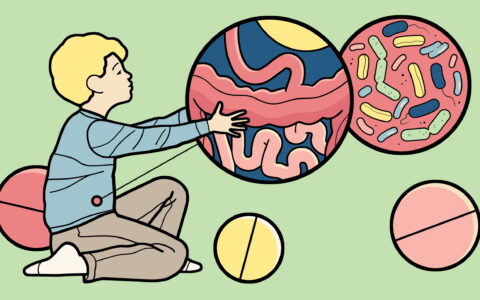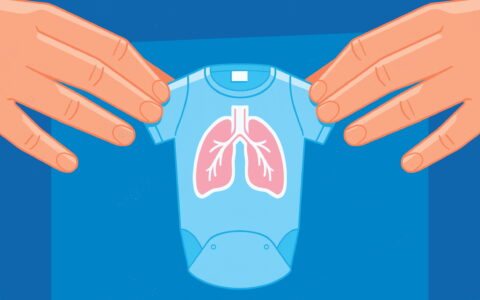Thanks to the recent emergence of highly effective biologic treatments for severe asthma, many patients can lead near symptom-free lives. Yet, an official definition for remission of the condition had not been developed — until now.
An expert panel representing several medical societies proffered the definition in a recent article in the Annals of Allergy, Asthma, and Immunology.
“In the past, we never thought we could get patients with severe asthma so well controlled that this type of situation was even achievable,” said Leonard B. Bacharier, M.D., a co-author of the article and Janie Robinson and John Moore Lee Chair in Pediatrics at Vanderbilt University Medical Center.
“It’s important to highlight that this is an achievable, definable goal because many of us working in this field believe that many patients who could benefit from these therapies but are not receiving them.”
He and 12 other asthma experts from three medical societies devised the new, six-part definition, which they say affirms that the potential now exists to view the illness in a way similar to many other chronic illnesses, such as rheumatoid arthritis: something that may not be cured but can enter a quiescent state with correct treatment.
“In the past, we never thought we could get patients with severe asthma so well controlled that this type of situation was even achievable.”
Vital Research Tool
Considering the seismic shift in outcomes made possible by the biologics, researchers needed a working definition of asthma remission.
Authors of the article represented the American College of Allergy, Asthma, and Immunology; the American Thoracic Society; and the American Academy of Allergy, Asthma, and Immunology. They settled on six criteria they deemed necessary to identify remission.
“We used a process called the Delphi process; it’s a way to build consensus that gives everyone a chance to chime in,” Bacharier said. “We wrangled with this for quite a while to come up with this definition, which currently largely applies to adults.”
The definition will eventually be modified to apply to children, he said.
Agreement Easy for Some
The experts found it generally easy to agree on the first two criteria included in the definition. It was unanimous that it should stipulate “no exacerbations requiring a physician visit, hospitalization, and/or systemic steroid for asthma.”
The second criterion – that the patient have had no days absent from work or in school over a 12-month period due to asthma-related symptoms – was also non-controversial.
“With a little discussion, the group agreed that asthma should not be getting in peoples’ way. If you’re missing work or school, you’re not in remission,” Bacharier said.
Lung Function Prompts Debate
The third criterion generated some discussion. It stated that “stable and optimized pulmonary function results on all occasions measured over a 12-month period with a minimum of two measurements during the year.”
“We want lung function to be as good as possible, but what’s the definition of stable? Can function go up 3 percent or 5 or 7 percent? You can have clinical improvement without improved lung function. It’s peculiar, but they don’t run with each other as well as you’d think,” Bacharier said.
The specialists also examined use of medication.
“If you’re in remission, you should not be on the highest doses of everything we have, plus the biologic,” Bacharier said.
Ultimately, the group’s fourth criterion allowed “continued use of controller (ICS, ICS/LABA, leukotriene receptor antagonist) only at low-to-medium dose of ICS (or less)” as defined by a specified set of guidelines.
The group’s fifth criterion set specific levels for the Asthma Control Test, with a minimum score above 20, and the Asthma Impairment and Risk Questionnaire, with a score of less than 2 as measured at least twice in the previous 12 months.
“Remission is intended to be this sustained state of control. When you measure these things, they always have to be in the range of well-controlled asthma,” Bacharier said.
Reliever Medications Contentious
Some members thought that a well-controlled patient should need no reliever medicine, while others thought rare use should be acceptable. The compromise position adopted stated that symptoms requiring one-time reliever therapy should occur no more than once a month.
“It’s possible that one day, just like with rheumatoid arthritis, we will discuss patients who have had their asthma go into remission as an actual clinical outcome — but we are not there yet,” Bacharier stated.
According to Bacharier, the experts view definition of the condition as an important first step.
“This article was a first step at defining remission, which has research implications prior to having direct clinical-practice relevance,” he said. “At the same time, the work highlights the fact that clinicians should begin thinking about more complete responses to these agents beyond what has traditionally been thought possible.”





